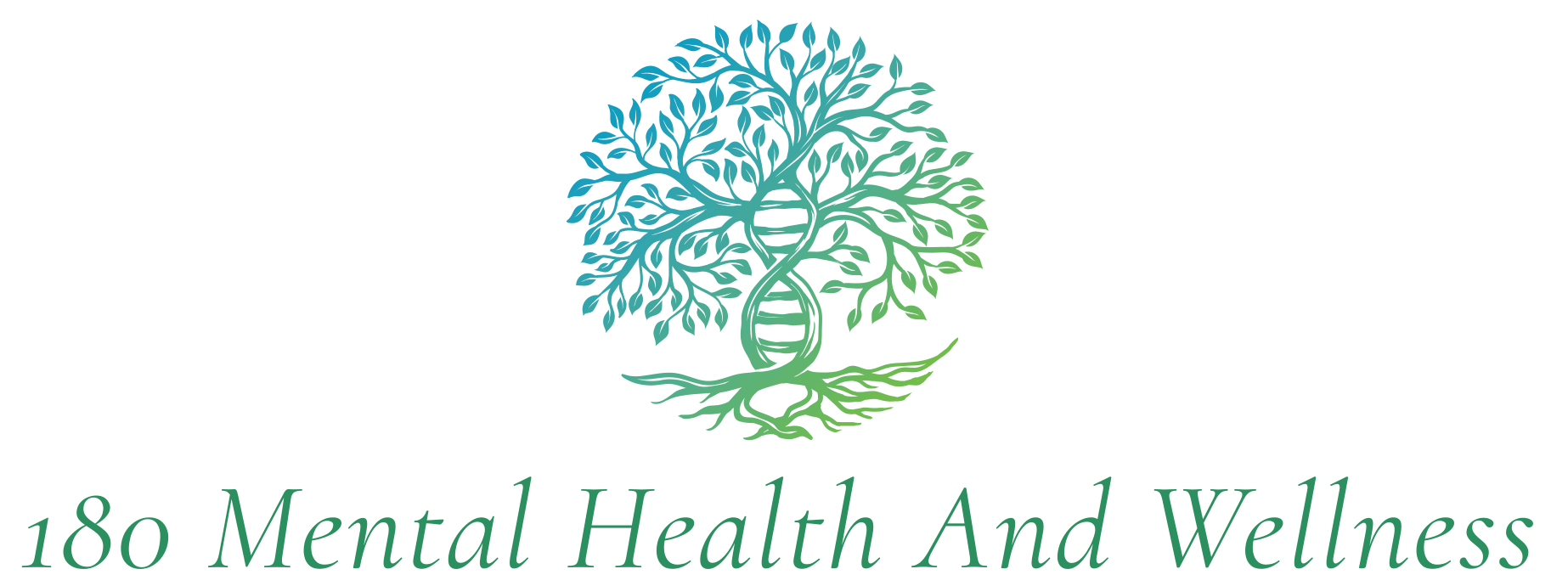PTSD
Dedicated & Comprehensive Care for Post-Traumatic Stress Disorder Symptoms
At 180 Mental Health and Wellness, we recognize the profound impact that post-traumatic stress disorder (PTSD) can have on your life. Our practice is dedicated to providing compassionate and effective treatment for PTSD, offering a safe and supportive environment for your healing journey. Through evidence-based therapies, including cognitive-behavioral therapy (CBT) and mindfulness techniques, our experienced team is here to help you regain control over your life and find a path to wellness.
What is PTSD?
Post-traumatic stress disorder (PTSD) is a mental health condition that can develop after an individual experiences or witnesses a traumatic event. These events often involve actual or perceived threats to one's life or physical integrity, and they can leave a lasting impact on a person's mental and emotional well-being.
PTSD is characterized by several key features:
- Intrusive Symptoms: Individuals with PTSD may experience distressing and intrusive thoughts, memories, or nightmares related to the traumatic event. These symptoms can be vivid and disruptive.
- Avoidance: People with PTSD often go to great lengths to avoid reminders of the traumatic incident. This may include avoiding certain places, people, or activities that trigger distressing memories.
- Negative Changes in Mood and Cognition: PTSD can lead to negative alterations in mood, such as persistent feelings of guilt, blame, or a diminished interest in previously enjoyable activities. Individuals may also have difficulty remembering key aspects of the traumatic event.
- Arousal and Reactivity: This category includes symptoms like irritability, heightened startle response, difficulty sleeping, and problems with concentration. Individuals may be in a constant state of hypervigilance, always on alert for potential threats.
Causes & Symptoms
Post-traumatic stress disorder (PTSD) develops as a result of exposure to traumatic events, which may include combat, sexual assault, accidents, natural disasters, or ongoing abuse. The disorder can affect anyone, and the risk may increase with the severity and duration of the trauma.
Common symptoms of PTSD are categorized into four clusters:
- Intrusive Thoughts: Individuals often experience distressing and involuntary memories, nightmares, and flashbacks related to the traumatic event.
- Avoidance and Numbing: People with PTSD tend to avoid reminders of the trauma, which can include places, people, or activities that trigger distress. They may also exhibit emotional numbing, detachment, and diminished interest in once-enjoyable activities.
- Negative Alterations in Mood and Cognition: This includes feelings of guilt, blame, or persistent negative emotions, as well as cognitive difficulties like memory problems and distorted beliefs about oneself or others.
- Arousal and Reactivity: Individuals may experience heightened arousal, which can manifest as irritability, anger outbursts, difficulty sleeping, and being easily startled.
PTSD can have a profound impact on an individual's daily life and well-being.
Diagnosis & Treatment
Diagnosis of post-traumatic stress disorder (PTSD) involves a thorough evaluation by a mental health professional, who assesses an individual's symptoms, medical history, and exposure to traumatic events. The diagnosis adheres to specific criteria outlined in established classification systems.
Treatment for PTSD typically combines psychotherapy, particularly cognitive-behavioral therapy (CBT) and eye movement desensitization and reprocessing (EMDR), with medication when necessary. Psychotherapy helps individuals manage symptoms, process traumatic memories, and develop coping strategies. Medications like antidepressants may be prescribed to alleviate specific symptoms.
Early intervention is crucial in improving outcomes for individuals with PTSD, and the tailored treatment plan ensures a path to recovery and emotional well-being. Ongoing support and therapy sessions are essential in managing and addressing the condition effectively.
Post-Traumatic Stress Disorder Treatment in Phoenix, Arizona
Take the first step toward healing from PTSD at 180 Mental Health and Wellness. Reach out to us at (480) 863-5250 or conveniently schedule an appointment online. Our dedicated team is here to provide support and effective treatment for PTSD, offering personalized care to guide you toward relief and a path to recovery.

